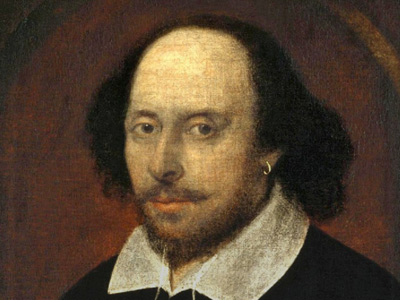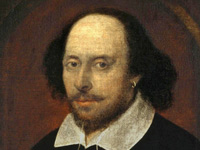William Shakespeare (1564-1616)

Influence
Shakespeare's work has made a lasting impression on later theatre and literature. In particular, he expanded the dramatic potential of characterisation, plot, language, and genre. Until Romeo and Juliet, for example, romance had not been viewed as a worthy topic for tragedy. Soliloquies had been used mainly to convey information about characters or events, but Shakespeare used them to explore characters' minds. His work heavily influenced later poetry. The Romantic poets attempted to revive Shakespearean verse drama, though with little success. Critic George Steiner described all English verse dramas from Coleridge to Tennyson as "feeble variations on Shakespearean themes."
Shakespeare influenced novelists such as Thomas Hardy, William Faulkner, and Charles Dickens. The American novelist Herman Melville's soliloquies owe much to Shakespeare; his Captain Ahab in Moby-Dick is a classic tragic hero, inspired by King Lear. Scholars have identified 20,000 pieces of music linked to Shakespeare's works. These include two operas by Giuseppe Verdi, Otello and Falstaff, whose critical standing compares with that of the source plays. Shakespeare has also inspired many painters, including the Romantics and the Pre-Raphaelites. The Swiss Romantic artist Henry Fuseli, a friend of William Blake, even translated Macbeth into German. The psychoanalyst Sigmund Freud drew on Shakespearean psychology, in particular, that of Hamlet, for his theories of human nature.
In Shakespeare's day, English grammar, spelling, and pronunciation were less standardised than they are now, and his use of language helped shape modern English. Samuel Johnson quoted him more often than any other author in his A Dictionary of the English Language, the first serious work of its type. Expressions such as "with bated breath" (Merchant of Venice) and "a foregone conclusion" (Othello) have found their way into everyday English speech.
HISTORY

RESOURCES
This article uses material from the Wikipedia article "William Shakespeare (1564-1616)", which is released under the Creative Commons Attribution-Share-Alike License 3.0.
© Stories Preschool. All Rights Reserved.









